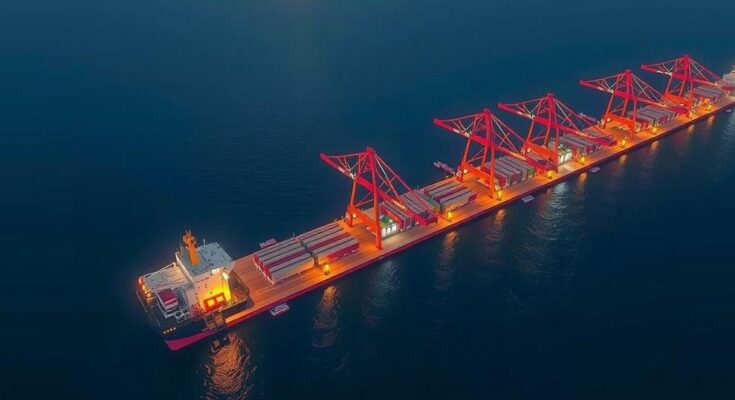Sudan has cancelled a $6 billion port deal with the UAE amid allegations of UAE support for paramilitary forces in Sudan. The finance minister declared the country will not concede any land on the Red Sea coast to the UAE. This decision follows a signed agreement in December 2022 for building a new port, with additional financial commitments from the World Bank forthcoming.
The government of Sudan has officially annulled a contract with the United Arab Emirates (UAE) that involved the construction of a new port on the Red Sea coast. Finance Minister Jibreel Ibrahim announced this decision, emphasizing that no land would be allocated to the UAE following their alleged support for the Rapid Support Forces (RSF) during the ongoing conflict with the Sudanese Armed Forces (SAF). Originally valued at $6 billion, the port agreement, which was established in December 2022, was set to involve the Abu Amama port project, located 200 kilometers north of Port Sudan, promising various features such as an industrial zone, an international airport, and a significant financial deposit to the Sudan Central Bank. Furthermore, the minister revealed that the World Bank plans to provide a $300 million grant to Sudan before June 2025.
The cancellation of the port agreement comes amid rising tensions between Sudan and the UAE due to accusations that the latter is backing the RSF in its conflict with governmental forces. This project was part of broader efforts to enhance Sudan’s economic infrastructure and facilitate international trade through a newly developed port facility. With Sudan seeking financial support, the commitment of the World Bank to provide funding highlights the urgent need for economic assistance amidst ongoing turmoil in the region.
The revocation of the port agreement between Sudan and the UAE underscores the shifting geopolitical dynamics in the region, particularly in relation to internal conflicts and external influences. The Sudanese government’s stance reflects a desire to assert control over its territory and resist perceived foreign intervention. As Sudan navigates these challenges, the anticipated financial support from the World Bank may play a critical role in stabilizing its economy.
Original Source: www.altaghyeer.info




